The Benjamin L. Hooks Institute for Social Change
Hooks National Book Award
Celebrating the Civil Rights Movement and Its Legacy
The Hooks National Book Award is presented annually to a non-fiction book that best furthers understanding of the civil rights movement and its legacy.
2024 Winner
February 5
Hooks National Book Award Presentation and Lecture - "Medgar and Myrlie: Medgar Evers and the Love Story That Awakened America" Featuring Joy-Ann Reid, Author
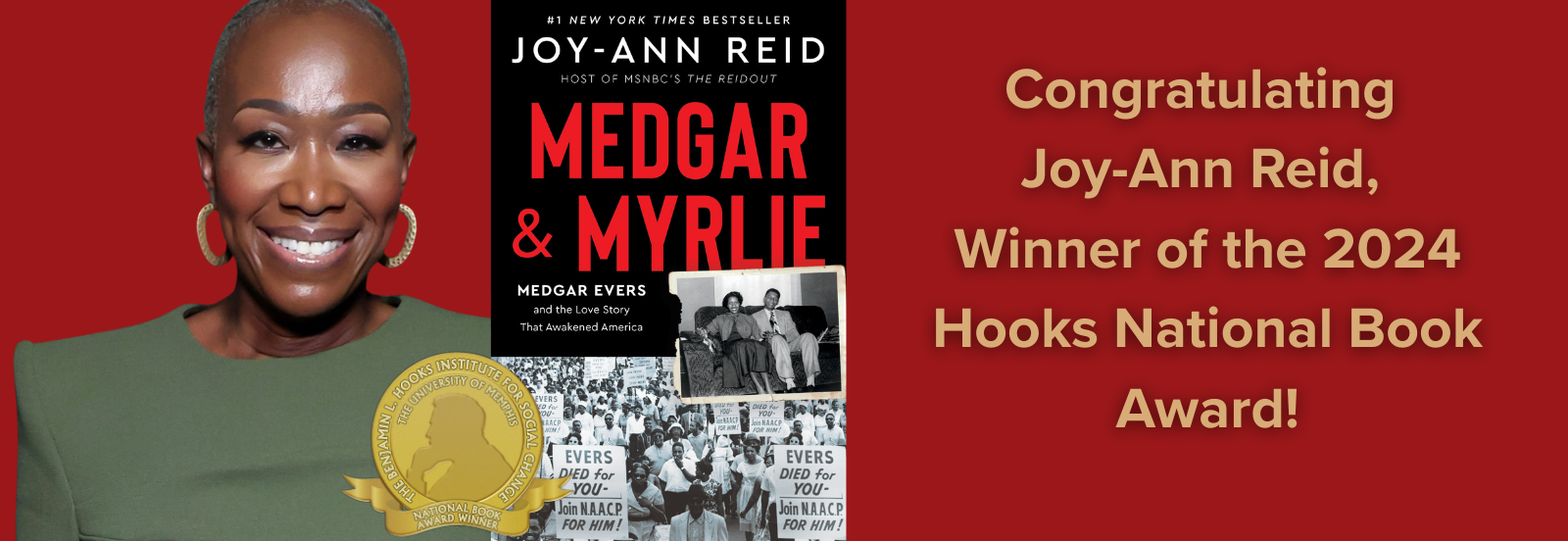
The Benjamin L. Hooks Institute for Social Change at the University of Memphis will present the Hooks National Book Award to Joy-Ann Reid, author of "Medgar and Myrlie: Medgar Evers and the Love Story That Awakened America" on Saturday, February 7th at 2pm. Details on reservations for this free, public event are forthcoming.
Quick View Event Details:
Hooks National Book Award Presentation and Lecture
The Michael D. Rose Theatre, University of Memphis Central Campus
Saturday, February 7, 2pm
Sponsored by:
Presenting Sponsors | UofM African & African American Studies Program; UofM Hardin Chair of Excellence in Journalism
Community Sponsor | Memphis Alumnae Chapter, Delta Sigma Theta Sorority, Inc.; Ting Internet and Mobile
Following University of Memphis Entities:
Department of English
Department of History
Marcus W. Orr Center for the Humanities
The Benjamin L. Hooks Institute for Social Change at the University of Memphis has selected “Medgar & Myrlie: Medgar Evers and the Love Story That Awakened America” by Joy-Ann Reid (Mariner Books) as the 2024 Hooks National Book Award winner. The book award will be presented in February 2026.
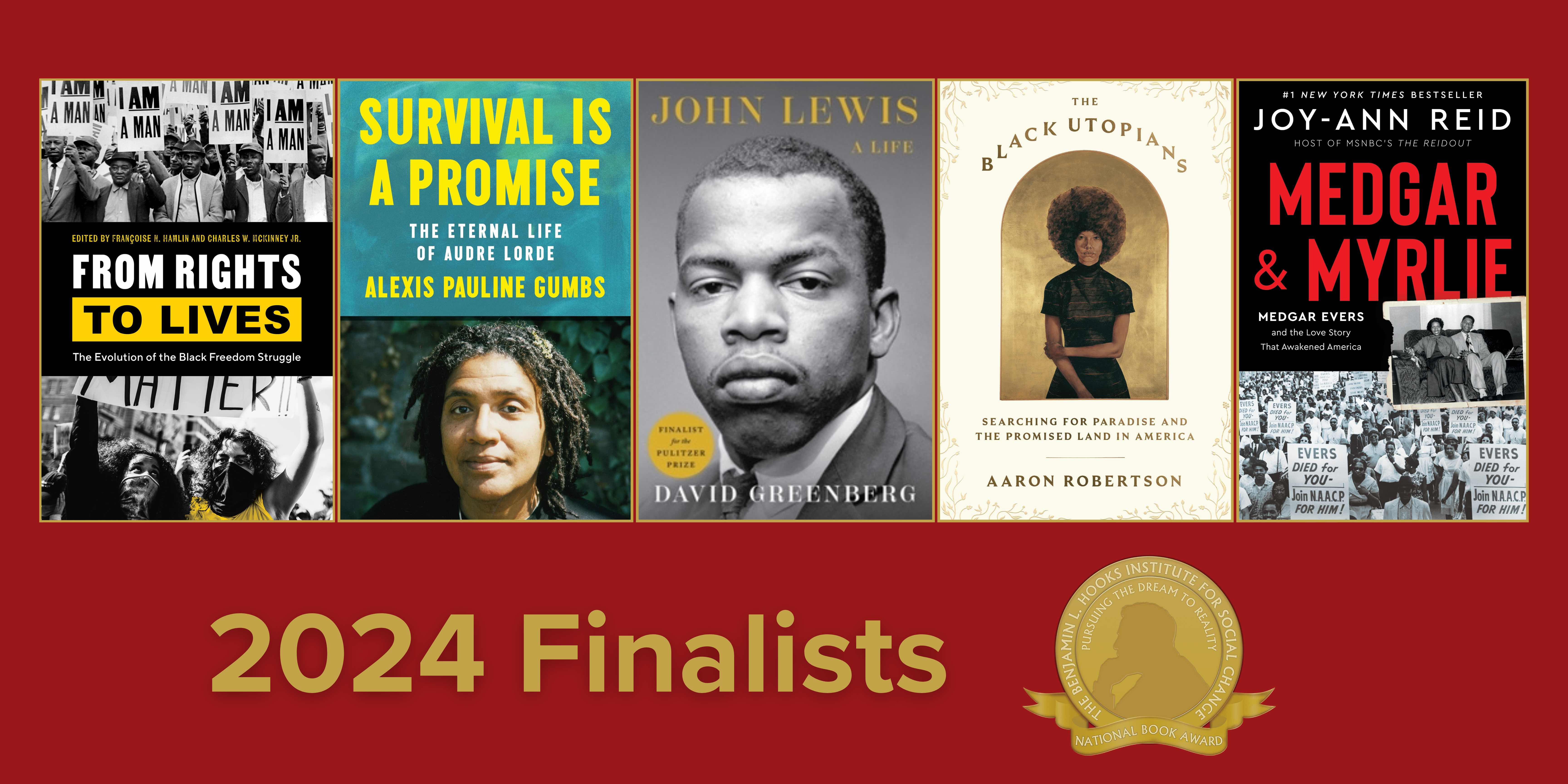
The Benjamin L. Hooks Institute for Social Change at the University of Memphis has selected the following finalists for the 2024 Hooks National Book Award:
- “Black Utopians: Searching for Paradise and the Promised Land in America” by Aaron Robertson (Farrar, Straus and Giroux)
- “From Rights to Lives: The Evolution of the Black Freedom Struggle” by Françoise Hamlin and Charles McKinney, Jr. (Vanderbilt University Press)
- “Medgar & Myrlie: Medgar Evers and the Love Story That Awakened America” by Joy-Ann Reid (Mariner Books)
- “Survival is a Promise: The Eternal Life of Audre Lorde” by Alexis Pauline Gumbs (Farrar, Straus and Giroux)
- “John Lewis: A Life” by David Greenberg (Simon & Schuster)
Finalists were chosen from 47 books that were nominated for the 2024 award.
“The finalists for the Hooks National Book Award are an eclectic, formidable group filled with stories that span the 19th century into the first quarter of the 21st century,” said Dr. Terrence Tucker, Hooks Book Award Chair. “The nominees cast new light on familiar stories such as the impact of civil rights icons Medgar and Myrlie Evers during the Civil Rights Movement while tracing the career of John Lewis before, during and after the movement. These works push audiences to view the Civil Rights Movement as part of a continuum in the fight for emancipation and view this crucial period as part of an ongoing project that directly impacts our present and remains crucial to shaping our future.
The finalists also demonstrate the multiple forms that the struggle for freedom and equality has taken for African Americans. Whether focusing on police violence, liberation theology or utopias, the nominees chart the extensive, varied attempts to create spaces for black survival, prosperity, and resistance. Our finalists treat history as a collaborative endeavor with innovative, informative, and accessible prose and make clear that the unfinished mission can, and must, be accomplished by ordinary citizens performing the extraordinary work of shaping the course of human history. In the search for the beloved community, these finalists cover a gamut of experiences from the founding of all-Black towns to the individual stories of survival in the face of assassination and racism to the contemporary attempts to maintain or recover the gains of the Civil Rights Movement into end of the 20th century and the beginning of the 21st.”
The award winner will be chosen this fall by a panel of judges representing various disciplines and academic institutions in Memphis. The book award winner will speak at a presentation hosted by the Hooks Institute.
2023 Hooks National Book Award winner
Our Secret Society: Mollie Moon and the Glamour, Money and Power Behind the Civil Rights Movement by Dr. Tanisha C. Ford (Amistad)
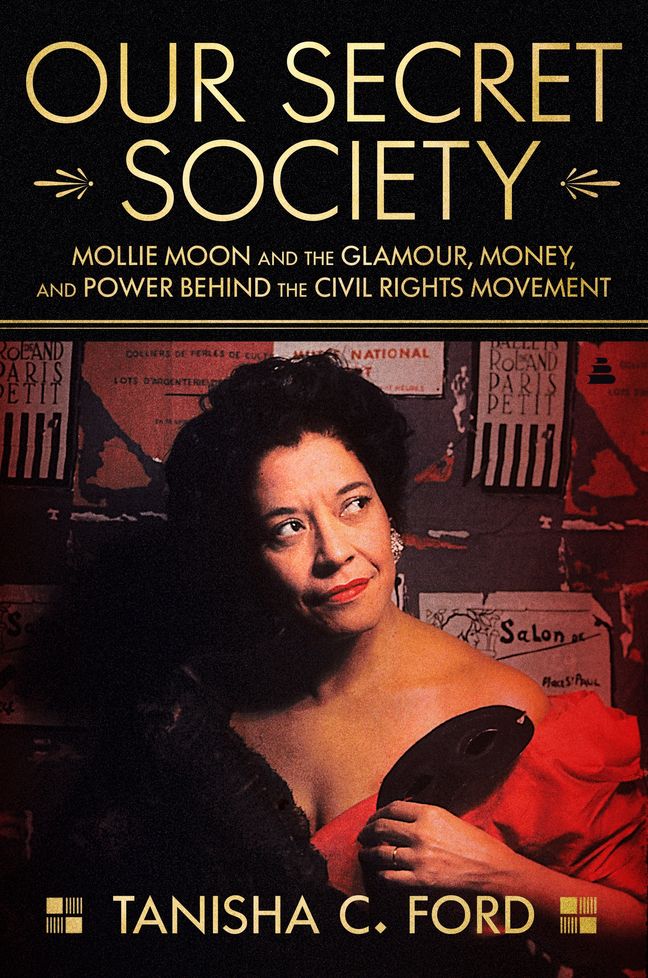
The Benjamin L. Hooks Institute for Social Change at the University of Memphis has selected Our Secret Society: Mollie Moon and the Glamour, Money and Power Behind the Civil Rights Movement by Dr. Tanisha C. Ford (Amistad) as the 2023 Hooks National Book Award winner.
An engrossing social history of the unsinkable Mollie Moon, the stylish founder of
the National Urban League Guild and fundraiser extraordinaire who reigned over the
glittering "Beaux Arts Ball,” the social event of New York and Harlem society for
fifty years—a glamorous soiree rivaling today’s Met Gala, drawing America’s wealthy
and cultured, both Black and white.
Our Secret Society brilliantly illuminates a little known yet highly significant aspect of the civil
rights movement that has been long overlooked—the powerhouse fundraising effort that
supported the movement—the luncheons, galas, cabarets, and traveling exhibitions attended
by middle-class and working-class Black families, the Negro press, and titans of industry,
including Winthrop Rockefeller.
Historian and cultural critic Tanisha C. Ford brings Mollie into focus as never before,
charting her rise from Jim Crow Mississippi to doyenne of Manhattan and Harlem, where
she became one of the most influential philanthropists of her time—a woman feared,
resented, yet widely respected. She chronicles Mollie’s larger-than-life antics through exhaustive research,
never-before-revealed letters, and dozens of interviews.
Our Secret Society ushers us into a world with its own rhythm and rules, led by its own Who’s Who of
African Americans in politics, sports, business, and entertainment. It is both a searing portrait
of a remarkable period in America, spanning from the early 1930s through the late 1960s,
and a strategic economic blueprint today’s activists can emulate.
Published by Amistad, Our Secret Society was also named the winner of the 2024 NAACP Image Award For Outstanding Literary Work Biography/Autobiography.
2023 Hooks National Book Award Finalists
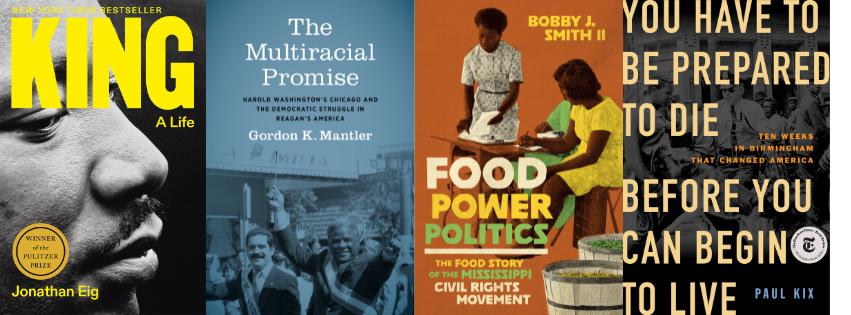
The Benjamin L. Hooks Institute for Social Change at the University of Memphis has selected the following finalists for the 2023 Hooks National Book Award:
- Food Power Politics: The Food Story of the Mississippi Civil Rights Movement by Bobby J. Smith II (University of North Carolina Press)
- King: A Life by Jonathan Eig (Farrar, Straus and Giroux)
- Multiracial Promise: Harold Washington's Chicago and the Democratic Struggle in Reagan's America by Gordon K. Mantler (University of North Carolina Press)
- You Have to be Prepared to Die Before You Can Begin to Live: Ten Weeks in Birmingham that Changed America by Paul Kix (Celadon Books)
About the Hooks National Book Award
The Hooks Institute’s National Book Award is presented to a non-fiction book published
in the calendar year that best furthers understanding of the American civil rights
movement and its legacy.
Finalists were chosen from 49 books that were nominated for the 2023 award. The award winner is chosen by a panel of judges representing various disciplines and academic institutions in Memphis. The award-winning author will then speak at a public event hosted by the Hooks Institute.
Hooks National Book Award Committee
- Dr. Terrence Tucker - department chair and associate professor, UofM Department of English
- Dr. Beverly Cross - Lillian and Morrie Moss Chair of Excellence in Urban Education, UofM
- Dr. Aram Goudsouzian - Bizot Family Professor of History, UofM
- Dr. Shatavia Wynn, assistant professor of Religious Studies and Africana studies
- Dr. Ladrica Menson-Furr - assistant dean of the UofM College of Arts and Sciences, associate professor of English, UofM
About the Book Award Nomination and Award Process
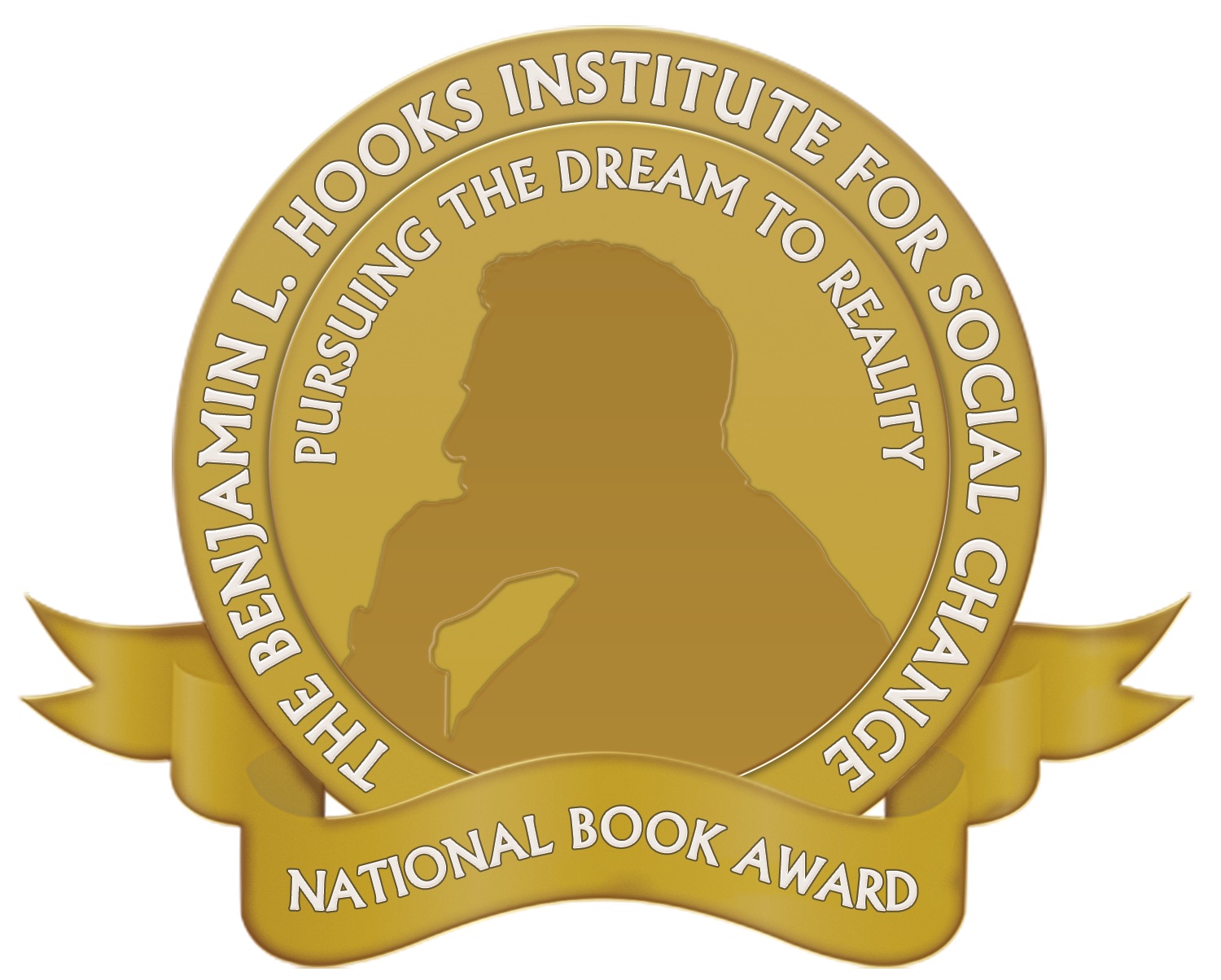 A panel of judges representing various disciplines and academic institutions in Memphis
awards the annual prize to the book that best furthers understanding of the civil
rights movement and its legacy.
A panel of judges representing various disciplines and academic institutions in Memphis
awards the annual prize to the book that best furthers understanding of the civil
rights movement and its legacy.- Books focusing on past or current civil rights or social justice issues, leaders, policies, etc. were eligible.
- An award of $1,000 will be made to the author(s).
- The winner of the 2023 Hooks National Book Award will present on their book at the University of Memphis in the 2024-25 Academic Year.
Contact
For questions or comments: Please contact Rorie Trammel, Associate Director of the Hooks Institute, at 901-678-3974 or via email at rtrammel@memphis.edu.
About the Hooks Institute
The Benjamin L. Hooks Institute implements its mission of teaching, studying and promoting civil rights and social change through research, education and direct intervention programs. Institute programs include community outreach; funding faculty research initiatives on community issues; implementing community service projects; hosting conferences, symposiums and lectures; and promoting local and national scholarship on civil and human rights. The Hooks Institute is an interdisciplinary center at the University of Memphis. Contributed revenue for the Hooks Institute, including funding from individuals, corporations and foundations, is administered through the University of Memphis Foundation, a 501(c)(3) organization.
Past National Book Award Recipients
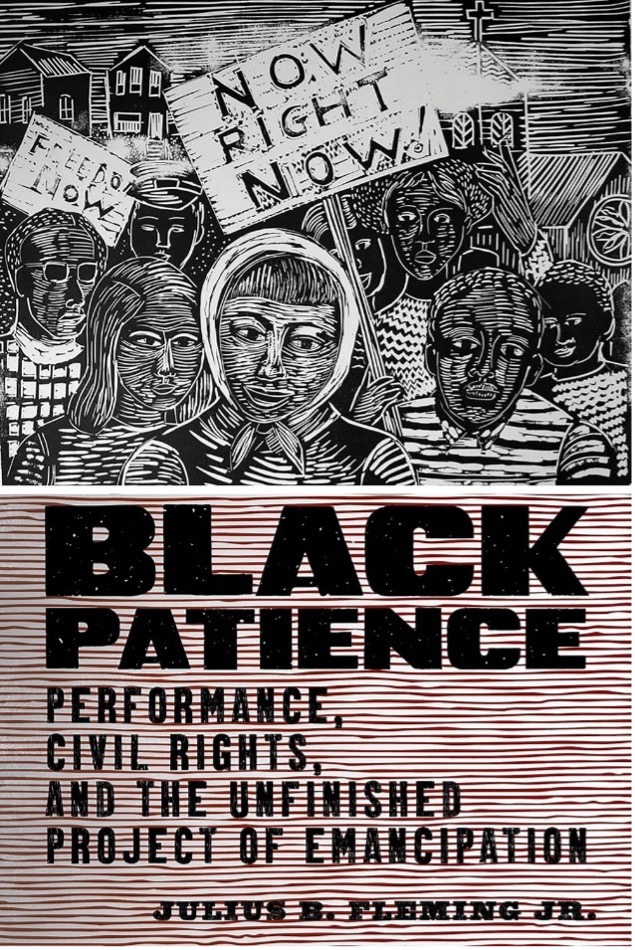
2022 | Black Patience: Performance, Civil Rights, and the Unfinished Project of Emancipation
By Dr. Julius B. Fleming, Jr.
New York University Press
Freedom, Now! This rallying cry became the most iconic phrase of the Civil Rights Movement, challenging the persistent command that Black people wait—in the holds of slave ships and on auction blocks, in segregated bus stops and schoolyards—for their long-deferred liberation.
In “Black Patience,” Julius B. Fleming Jr. argues that during the Civil Rights Movement, Black artists and activists used theater to energize this radical refusal to wait. Participating in a vibrant culture of embodied political performance that ranged from marches and sit-ins to jail-ins and speeches, these artists turned to theater to unsettle a violent racial project that Fleming refers to as “Black patience.” Inviting the likes of James Baldwin, Lorraine Hansberry, Alice Childress, Douglas Turner Ward, Duke Ellington, and Oscar Brown Jr. to the stage, “Black Patience” illuminates how Black artists and activists of the Civil Rights era used theater to expose, critique and repurpose structures of white supremacy.
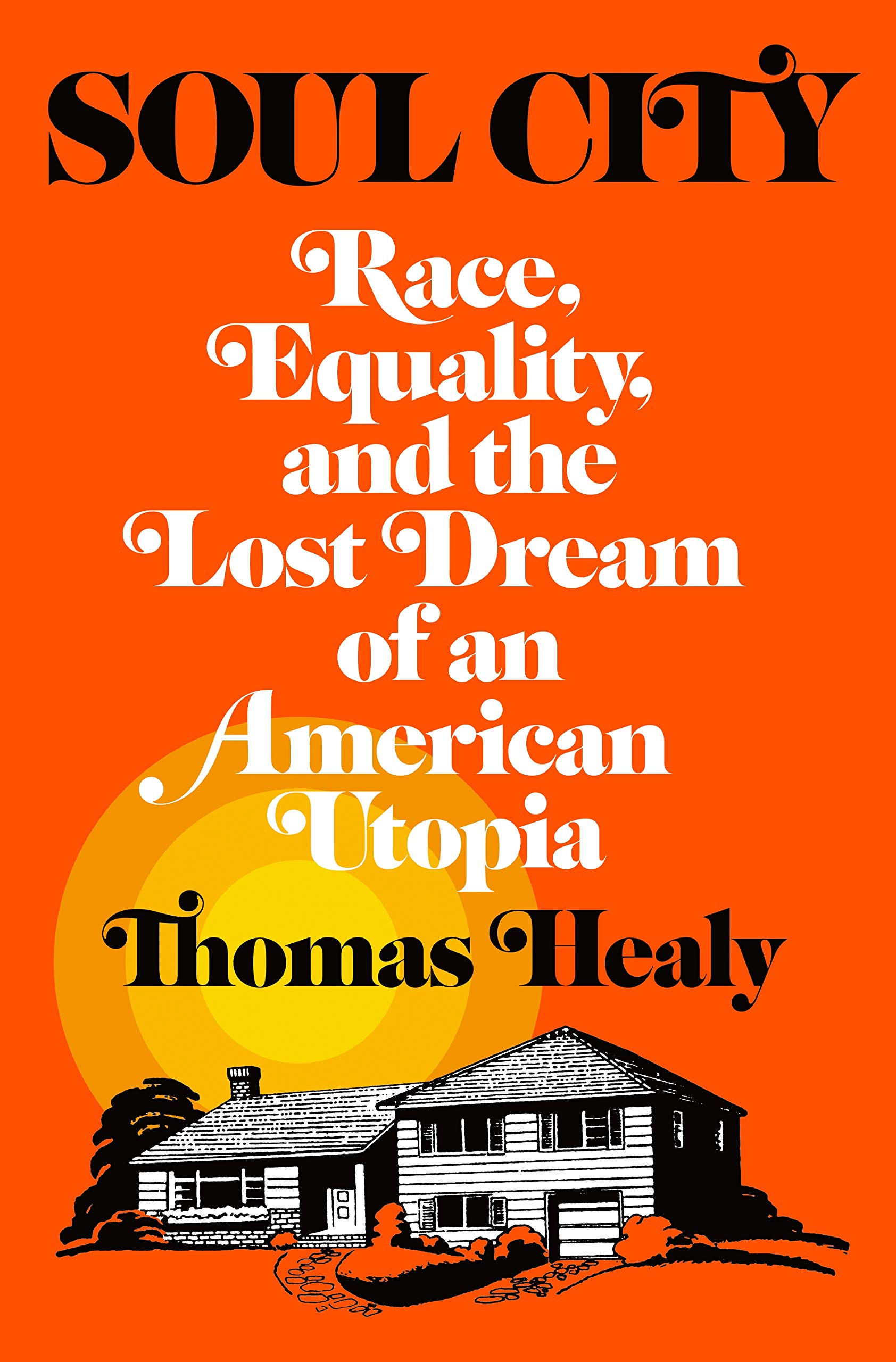 2021 | Soul City: Race, Equality and the Lost Dream of an American Utopia
2021 | Soul City: Race, Equality and the Lost Dream of an American Utopia
By Thomas Healy, Esq.
Metropolitan Books
In 1969, with America’s cities in turmoil and racial tensions high, civil rights leader Floyd McKissick announced an audacious plan: he would build a new city in rural North Carolina, open to all but intended primarily to benefit Black people. Named Soul City, the community secured funding from the Nixon administration, planning help from Harvard and the University of North Carolina, and endorsements from the New York Times and the Today show. Before long, the brand-new settlement – built on a former slave plantation – had roads, houses, a health care center, and an industrial plant. By the year 2000, projections said, Soul City would have fifty thousand residents.
But the utopian vision was not to be. Battered from the left and the right, Soul City was shut down after just a decade. Was it an impossible dream from the beginning? Or a brilliant idea thwarted by prejudice and ignorance? And how might America be different today if Soul City had been allowed to succeed?
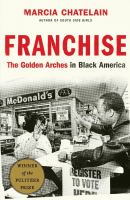 2020 | Franchise: The Golden Arches in Black America
2020 | Franchise: The Golden Arches in Black America
By Marcia Chatelain
Liveright Publishing/W.W. Norton
Franchise investigates the untold history of the cooperation among fast-food companies, politicians, civil rights leaders and black entrepreneurs in the years following the 1960s civil rights movement. This untold history looks at how the prevalence of fast-food restaurants in Black communities today resulted from a push by these groups for what they saw as an economical solution to racial disparities in America's Black communities — the franchising of fast-food restaurants in black neighborhoods by Black people. “Franchise” illuminates the power of Black-owned franchises in a larger freedom struggle while also explaining how corporations such as McDonald's have deprived genuine wealth in Black urban communities.
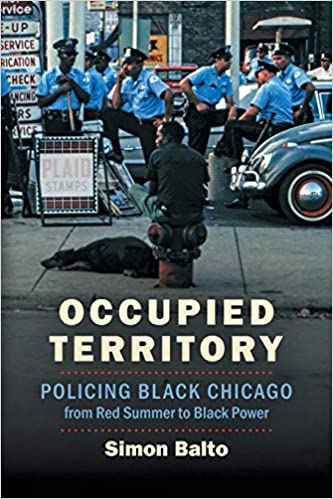 2019 | Occupied Territory: Policing Black Chicago from Red Summer to Black Power
2019 | Occupied Territory: Policing Black Chicago from Red Summer to Black Power
By Dr. Simon Balto
University of North Carolina Press
Press Release: Occupied Territory
Occupied Territory: Policing Black Chicago from Red Summer to Black Power, is a powerful work of history that speaks directly to our current crisis over race and policing. Occupied Territory is meticulous and engaging with conclusions that are provocative and convincing. It informs a national conversation about the racist foundations of the criminal justice system. Balto chronicles how, since the Great Migration of African Americans to northern cities such as Chicago, policing served as a brutal form of racial discipline. Despite the protests of Black Chicagoans, those practices continued over the course of the twentieth century.
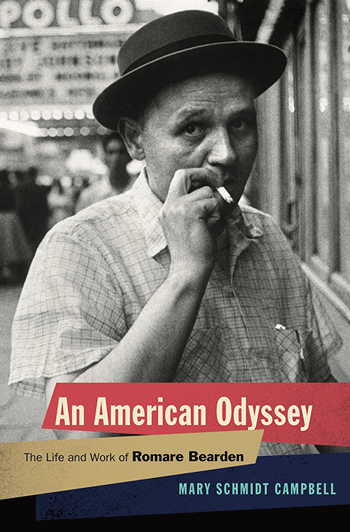 2018 | An American Odyssey: The Life and Work of Romare Bearden
2018 | An American Odyssey: The Life and Work of Romare Bearden
By Dr. Mary Schmidt Campbell
Oxford University Press
Press Release: An American Odyssey
An American Odyssey provides a telling biography of the artist Romare Bearden, whose iconic collages conveyed the richness and complexity of African American life in the civil rights era. As Campbell demonstrates, Bearden’s work transcended the visual stereotypes of African Americans. He situated his characters in a deep past, while employing a modernist style that was re-envisioning the black experience.
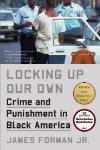 2017 | Locking Up Our Own: Crime and Punishment in Black America
2017 | Locking Up Our Own: Crime and Punishment in Black America
By James Forman, Jr.
Farrar, Straus and Giroux Publishers
Press Release: Locking Up Our Own
In his remarkable book, Forman argues that the disproportionate impact of long prison sentences on African American communities was not shaped solely by whites, but in part by the exasperation of some African Americans who urgently demanded action to deescalate crime in their communities related to drugs. Forman encourages a candid examination of the forces that created draconian criminal sentences related to drugs to encourage honest and transformative reform of the criminal justice system.
2016 | We Are an African People: Independent Education, Black Power, and the Radical Imagination
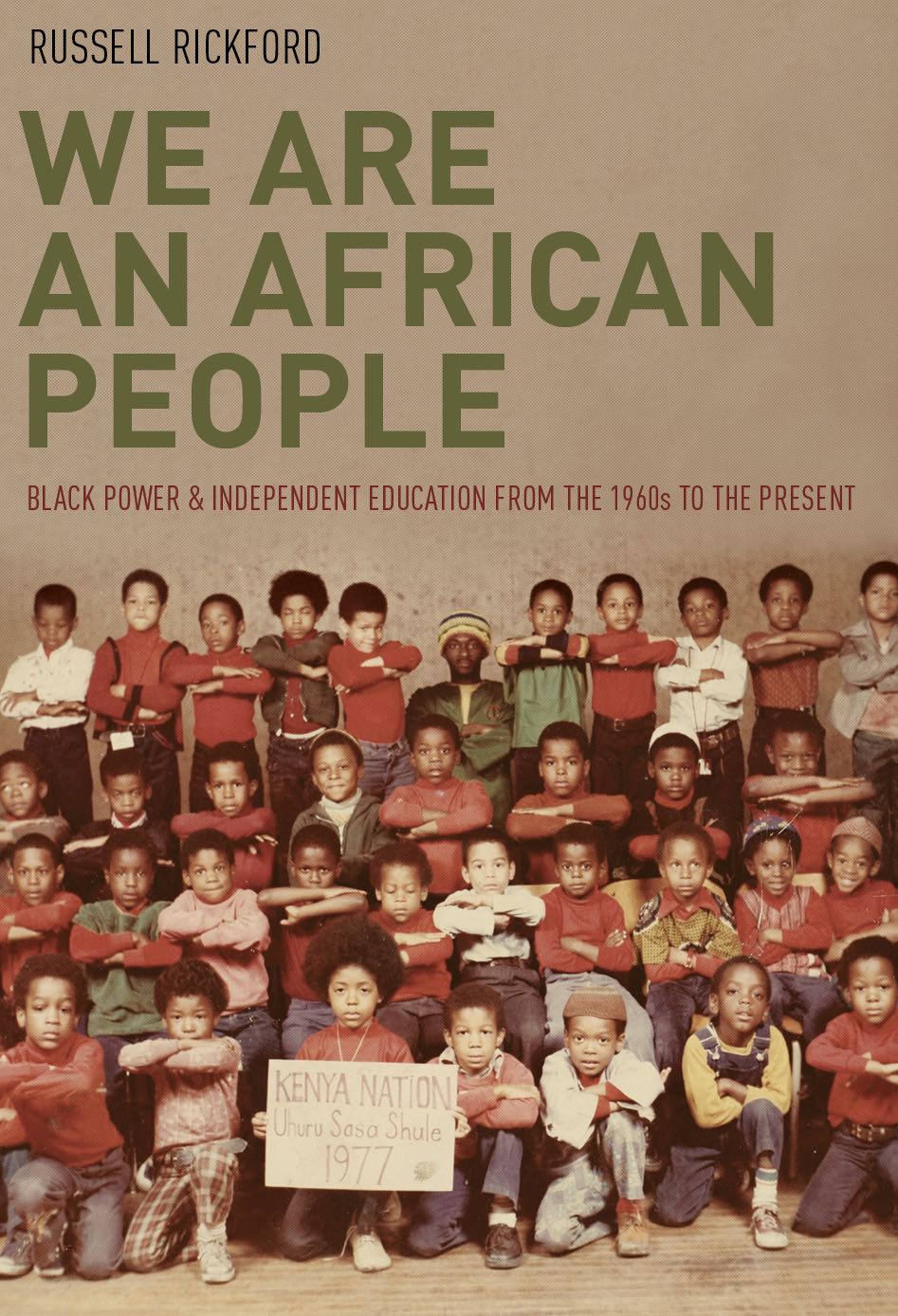 By Russell Rickford
By Russell Rickford
Oxford University Press
Press Release: We Are an African People
In the midst of the more well-studied educational changes of the school desegregation era, a handful of "Pan African nationalist" independent black schools emerged as an alternative mechanism for African-American uplift. We Are an African People examines the ideas and motivations behind these autonomous black institutions and places them within a broader discussion about how best to achieve liberation for the next generation of African Americans. Rickford's work expands upon the understanding of a very specific topic within the quest for the intellectual liberation of African-Americans and grapples with very broad questions about education, freedom and the diversity of viewpoints during the civil rights era.
2015 | Eye On the Struggle: Ethel Payne, the First Lady of the Black Press
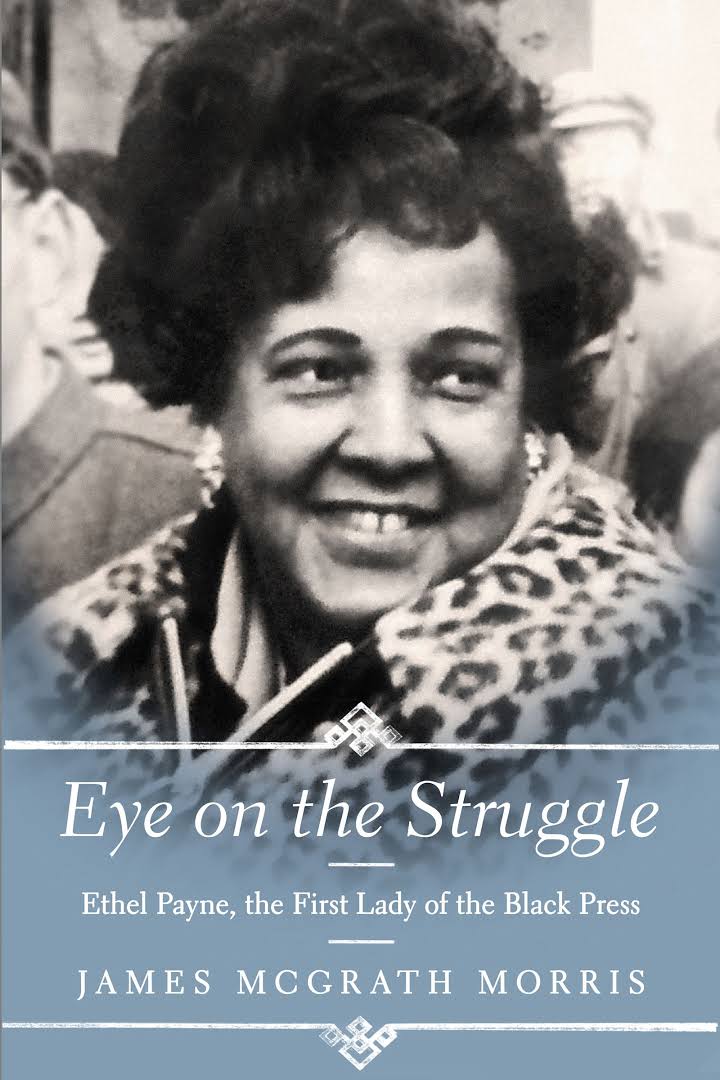 By James McGrath Morris
By James McGrath Morris
Amistad/Harper Collins Publishers
Press Release: Eye On the Struggle
Morris' biography excavates the story of Ethel Payne, a journalist whose work for the Chicago Defender during her multi-decade career provided a lens to thousands of African-American readers into the action of the civil rights movement and beyond. Covering the school desegregation crisis in Little Rock, interviewing black troops in Vietnam or quizzing multiple presidents during her years at the White House, Payne's career demonstrated the role journalists could play both in helping to build a movement by informing the public and in furthering that movement by putting pointed questions to those in power.
2014 | Stokely: A Life
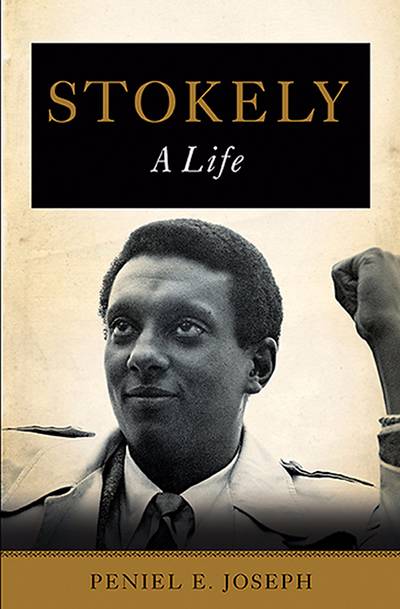 By Peniel E. Joseph
By Peniel E. Joseph
Basic Civitas Books
Press Release: Stokely: A Life
In the 1960s, Civil Rights activist Stokely Carmichael coined the phrase "Black Power"
with the symbolic image of the raised black fist to embody it. A charismatic, forceful,
young and brilliant intellectual with civil rights rooted in non-violent tactics,
Carmichael became increasingly dissatisfied with racial inequality. This led him to
more militant approaches to achieve political self-determination for African Americans.
The book, Stokely: A Life, winner of the 2014 Benjamin L. Hooks Institute National Book Award, provides an
illuminating profile of Carmichael's journey of disappointments, conflict, and hope
for a more just nation and world.
2013 | How it Feels to be Free: Black Women Entertainers and the Civil Rights Movement
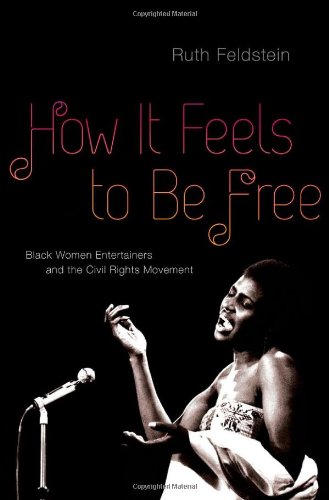
by Ruth Feldstein
Oxford University Press
Press Release: How it Feels to be Free
2013 | On the Corner: African American Intellectuals and the Urban Crisis
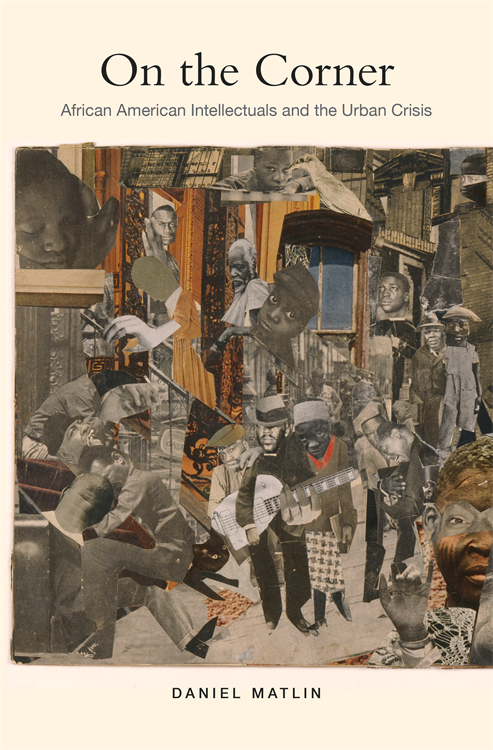
by Daniel Matlin
Harvard University Press
Press Release: On the Corner
On the Corner revisits the volatile moment when African American intellectuals were thrust into the spotlight as indigenous interpreters of black urban life to white America, and examines how three figures--Kenneth B. Clark, Amiri Baraka, and Romare Bearden--wrestled with the opportunities and dilemmas their heightened public statures entailed. Daniel Matlin locates in the 1960s a new dynamic that has continued to shape African American intellectual practice to the present day, as black urban communities became the chief objects of black intellectuals' perceived social obligations.
2012 | The Black Revolution on Campus
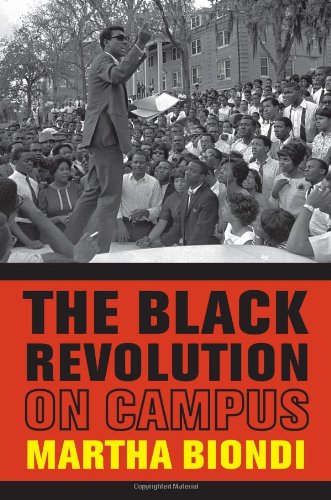 by Martha Biondi
by Martha Biondi
University of California Press
Press Release: The Black Revolution on Campus
The Black Revolution on Campus is the definitive account of an extraordinary but forgotten chapter of the black freedom struggle. In the late 1960s and early 1970s, Black students organized hundreds of protests that sparked a period of crackdown, negotiation, and reform that profoundly transformed college life. At stake was the very mission of higher education. Black students demanded that public universities serve their communities; that private universities rethink the mission of elite education; and that black colleges embrace self-determination and resist the threat of integration. Most crucially, black students demanded a role in the definition of scholarly knowledge.
2011 | Malcolm X: A Life of Reinvention
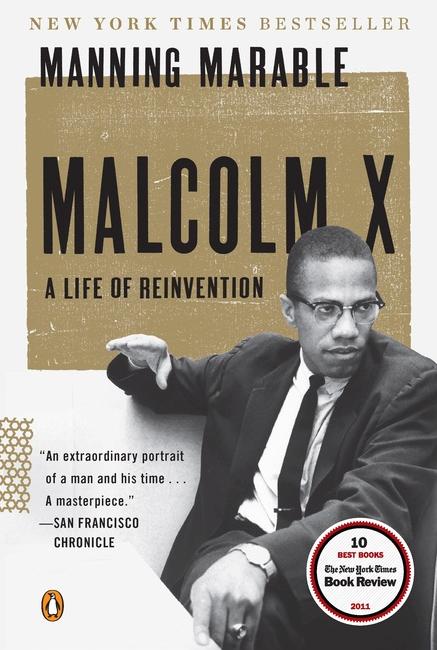
by Manning Marable
Viking
Press Release: Malcolm X: A Life of Reinvention
Manning Marable's acclaimed biography of Malcolm X finally does justice to one of the most influential and controversial figures of twentieth-century American history. Filled with startling new information and shocking revelations, Malcolm X unfolds a sweeping story of race and class in America. Reaching into Malcolm's troubled youth, it traces a path from his parents' activism as followers of Marcus Garvey through his own work with the Nation of Islam and rise in the world of black nationalism, and culminates in the never-before-told true story of his assassination.
2010 | Hands on the Freedom Plow: Personal Accounts by Women in SNCC
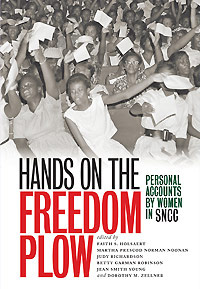
by Faith S. Holsaert, Martha Prescod, Norman Noonan, Judy Richardson, Betty Garman
Robinson, Jean Smith Young, and Dorothy M. Zellner University of Illinois Press
Press Release: Hands on the Freedom Plow
In Hands on the Freedom Plow, fifty-two women--northern and southern, young and old, urban and rural, black, white, and Latina--share their courageous personal stories of working for the Student Nonviolent Coordinating Committee (SNCC) on the front lines of the Civil Rights Movement.
